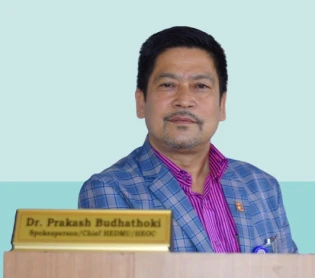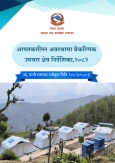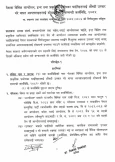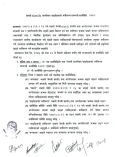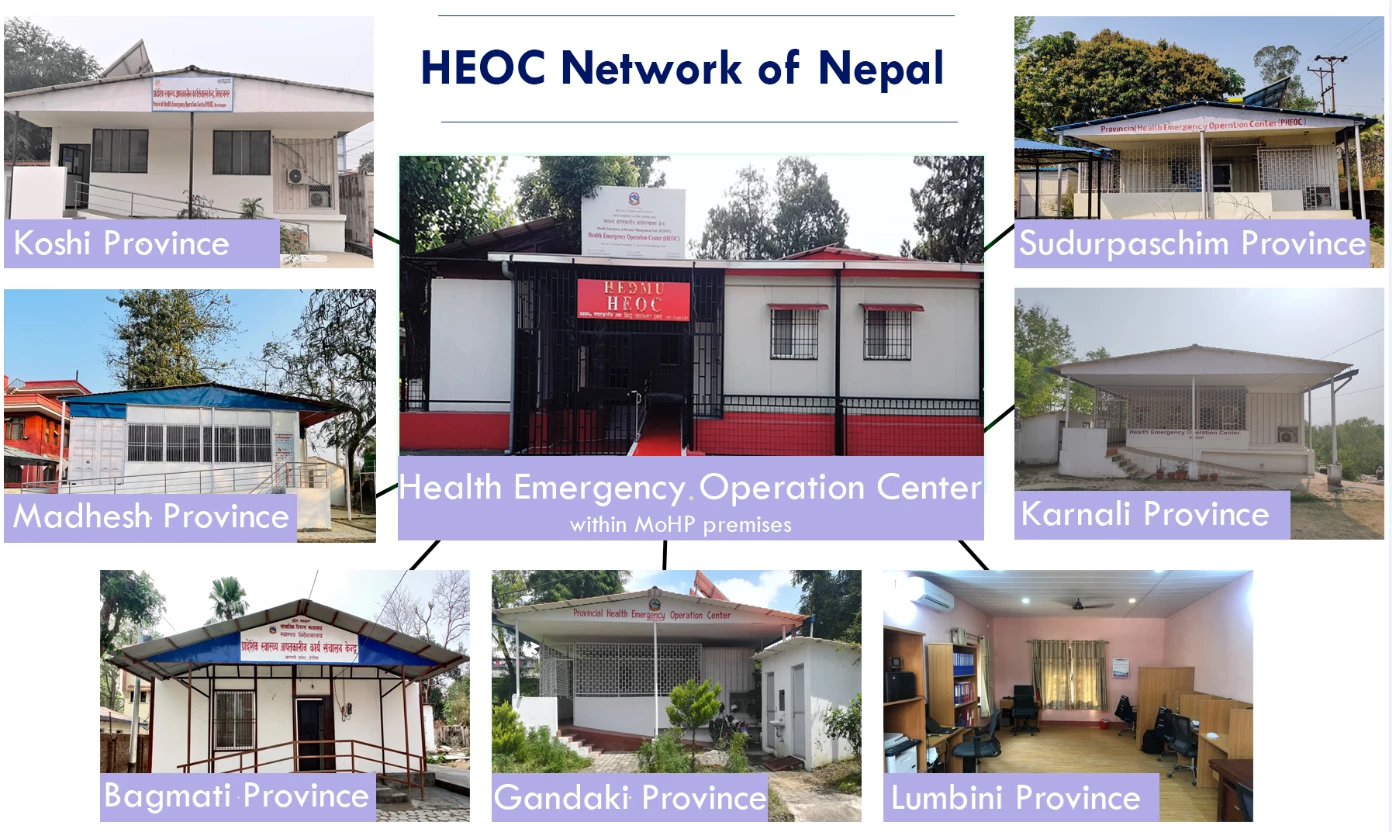
HEOC Network of Nepal
HEOC Network of Nepal
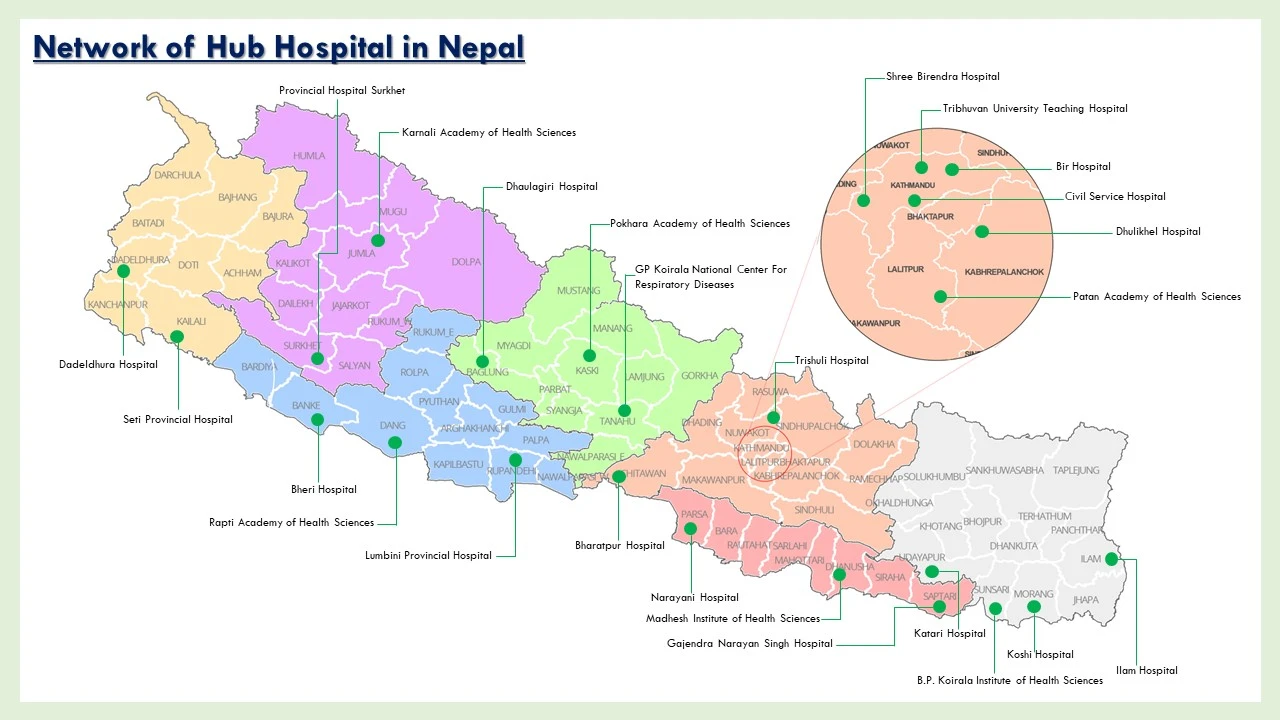
Network of Hub Hospital in Nepal
Network of Hub Hospital in Nepal
news & updates
view moreFebruary 25, 2026
जेन-जी (Zen-Z) आन्दोलनको क्रममा घाइते भएका व्यक्तिहरूको विवरण (जम्मा २५९९ जनाको विवरण)
जेन-जी (Zen-Z) आन्दोलनको क्रममा घाइते भएका व्यक्तिहरूको विवरण (जम्मा २५९९ जनाको विवरण)
read moreDecember 23, 2025
जेन जी आन्दोलनको क्रममा घाइते भई उपचाररत घाइतेहरूको स्वास्थ्य तथा जनसंख्या मन्त्रालयलाई विभिन्न अस्पतालहरूबाट प्राप्त विवरण
जेन जी आन्दोलनको क्रममा घाइते भई उपचाररत घाइतेहरूको स्वास्थ्य तथा जनसंख्या मन्त्रालयलाई विभिन्न अ...
read moreDecember 02, 2025
एम्बुलेन्स र शववाहनको विवरण उपलब्ध गराउने सम्बन्धी अत्यन्त जरूरी सूचना !!!
एम्बुलेन्स र शववाहनको विवरण उपलब्ध गराउने सम्बन्धी अत्यन्त जरूरी सूचना !!!
read moreNovember 12, 2025
प्रेस विज्ञप्ति - जेनजी प्रदर्शनका घाइतेहरूको वर्गीकरण सम्बन्धमा
प्रेस विज्ञप्ति - जेनजी प्रदर्शनका घाइतेहरूको वर्गीकरण सम्बन्धमा
read moreOctober 04, 2025
सम्भावित जोखिमका लागि तयारी अवस्थमा रहने सम्बन्धमा
सम्भावित जोखिमका लागि तयारी अवस्थमा रहने सम्बन्धमा
read more